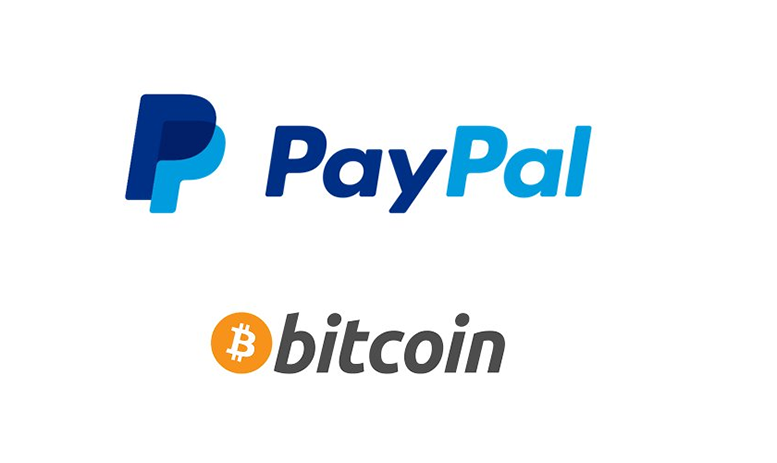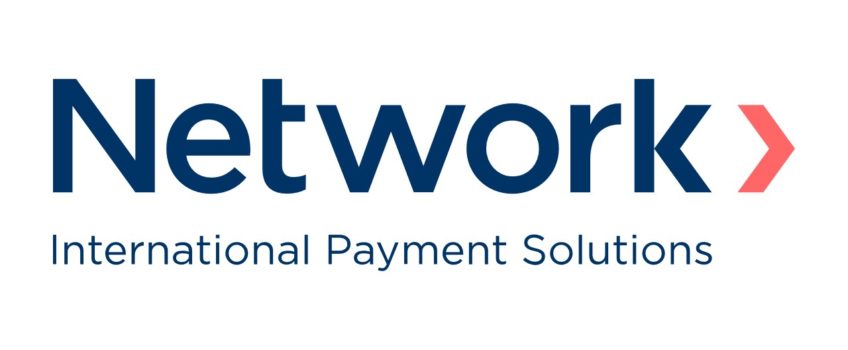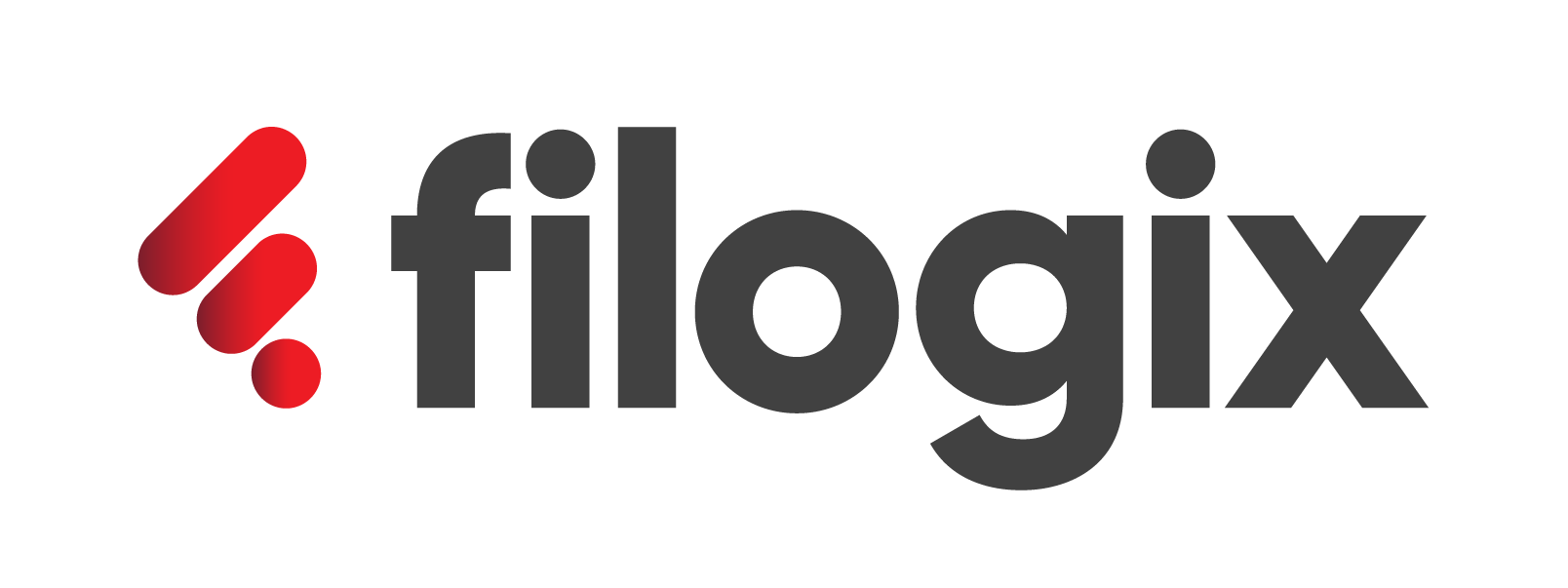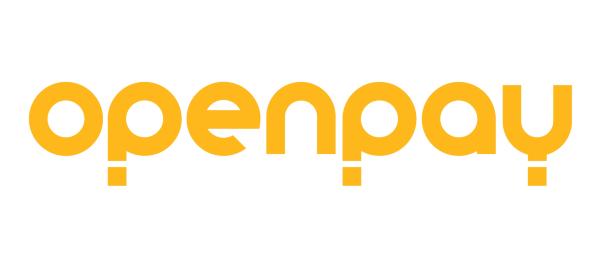Published
- 06:00 am

The migration toward digital payments and digital representations of value continues to accelerate, driven by the COVID-19 pandemic and the increased interest in digital currencies from central banks and consumers. PayPal Holdings, Inc. (NASDAQ: PYPL) today announced the launch of a new service enabling its customers to buy, hold and sell cryptocurrency directly from their PayPal account, and signaled its plans to significantly increase cryptocurrency's utility by making it available as a funding source for purchases at its 26 million merchants worldwide.
Following the news, Danny Scott, Co-Founder/CEO at CoinCorner, says:
"It’s only been a matter of time before PayPal offered their customers a way to buy Bitcoin. Earlier in the summer, they announced that they were looking at the option, having dropped out of the Libra association a little over a year ago.
The news hasn’t really come as a surprise to the industry. One of PayPal’s competitors in the US, Square, had seen revenue of $306 million in Q1 2020 surpassing its fiat revenue stream by around $100 million.
PayPal is currently only offering this service to the US and by the sounds of the functionality, it’s very basic, meaning that it’s a closed loop - aka, you can’t withdraw your Bitcoin and use it elsewhere, or send your Bitcoin from outside of PayPal into their system.
The announcement is still great news, however, as it shows a positive step forward for the industry, and brings yet more credibility to Bitcoin and its future."
The announcement that PayPal will allow its users to buy, sell and hold cryptocurrencies is the most important news this year for the digital asset industry, thinks Charles Hayter, CryptoCompare CEO. He comments:
“With PayPal’s 346 million users and 26 million merchants this development brings digital assets to the mainstream public in a more meaningful way than anything else we have seen this year. However, users will not be allowed to transfer cryptocurrency to or from PayPal and will not control their private keys.
So whilst cryptocurrency adoption will grow thanks to PayPal’s move, the fintech firm won’t be a true on-ramp to the cryptocurrency ecosystem as users who purchase cryptoassets using PayPal will be unable to interact with blockchain-based applications.
Retail trading of bitcoin has been a significant profit generator for Square and PayPal has been rewarded for tapping into this lucrative market with a 4% bump in stock price. We can expect to see more payment providers follow suit.”
Related News
- 06:00 am

TymeBank (www.TymeBank.co.za), a leading digital bank in South Africa, looks to empower small and micro businesses to accept card payments, powered by Network International (www.Network.ae), the leading enabler of digital commerce across Africa and the Middle East.
Following their successful entry into the South African consumer banking market, TymeBank are now planning to build accessible and affordable payment solutions for the small and micro businesses market. A digital-only bank, TymeBank offers a modern alternative to traditional banking brands and aims to make banking more accessible and affordable to all South Africans having already recruited 2.2m consumers in the past two months.
Network International have already enabled TymeBank to become the first new card acquirer in South Africa for more than a decade and have now implemented a solution with both local processing and connectivity to international card schemes. Network will provide a full end-to-end acquiring solution to TymeBank, including the N-Genius™ payment and processing capability through the company’s integrated omni-channel technology platform, Network One. This will enable TymeBank to expand its offering to power digital payment acceptance among South African small and medium enterprises (SMEs).
Network International has been at the forefront of driving digital payments acceptance across Africa and the Middle East, offering end-to-end payment solutions to a growing customer base in over 50 countries.
Dieter Botha, Chief Technology & Operations Officer, TymeBank South Africa, said: “TymeBank continues to enhance and expand its provision of affordable (low cost) banking and financial services to the South African market. The bank is always on the lookout for capable and forward-thinking service providers who are prepared to join us on our exciting journey. One such service provider is Network International who met and exceeded our criteria. Network provides platforms that are scalable, proven and cost-effective and bring the bank the ability to develop innovative product and service offerings. Network’s acquiring platform, for instance, supports all the many product features and new developments that the bank was looking for. We are therefore proud to announce that the engagement will be launching a differentiated, innovative, low-cost acquiring service to the South African SME marketplace”.
Andrew Key, Managing Director, Network International Africa, said: “Our engagement with digital banking pioneer, TymeBank not only broadens our foothold in South Africa, but also carries inherent synergies that will positively impact digital payment penetration in the country. TymeBank have challenged the traditional banking offering, through technology-driven innovation and we are delighted to support them as they look to increase payment acceptance among the SME sector. We anticipate broadening our relationship with TymeBank with an increased range of services over the coming months.”
Related News
- 06:00 am

Finastra, via its Canadian mortgage business Filogix, has acquired Doorr, a provider of cloud-based point-of-sale mortgage application software used by brokers to improve the mortgage experience. The deal is part of Finastra’s strategic investment in its Filogix mortgage marketplace, connecting consumers to brokers, lenders and many supporting partners to enable a secure mortgage application process. It will enhance Filogix capabilities in support of delivering next generation solutions to the Canadian mortgage market and deliver benefits to consumers, brokers and lenders.
Benefits include:
- Consumers: A better customer experience with features such as digital signatures and self-service interaction capabilities, making the process faster and more convenient
- Brokers: A reduction in paperwork with digitized processes, custom workflows and enhanced features such as lead generation and CRM functionality in the cloud
- Lenders: Increased and seamless access to mortgage volumes from new and emerging channels
Siobhan Byron, SVP, Technology Enabled Managed Services (TEMS) at Finastra, said: “Filogix has always been the go-to provider of tools and technology for mortgage originators in Canada. The addition of Doorr will bring cutting edge features backed by the talented individuals that join us from the company. Combined with our deep expertise and leading position in the Canadian brokered mortgage market – together we can improve the borrowing experience for consumers, brokers and lenders.”
Already a Filogix mortgage marketplace partner, where users can benefit from a wide range of value-added services such as credit process automation, the acquisition brings Doorr’s advanced technology capabilities to Filogix, including a state-of-the-art user interface in the cloud – enabling residential mortgage deals to be completed quickly, reliably and securely.
Muhammad Rashid, Co-founder & CEO at Doorr, said: “We’re excited to be joining the Finastra family, extending our trusted partnership. Our values around digitizing the mortgage application process to drive an improved customer experience while harnessing the power of open APIs are well aligned.”
Finastra’s legal counsel for the transaction was Stikeman LLP. Financial details have not been disclosed.
Related News

Peter Bracey
MD at Bracey’s Accountants
The past few months have underlined the need for better business insight to reduce risk, improve decision making and exploit new opportunities. see more
- 04:00 am

MarketAxess Holdings Inc. (Nasdaq: MKTX) today announced that Goldman Sachs & Co. LLC has committed to become a dedicated market maker and is actively contributing streaming prices for US investment grade corporate bonds to the MarketAxess Live Markets™ order book for institutional credit markets.
Leveraging the anonymous all-to-all Open Trading marketplace, Live Markets provides a single view of two-way, actionable prices for the most active US investment grade bonds, including recently issued debt, benchmark issues and news-driven securities. Launched in the summer of 2020, Live Markets gives institutional credit investors and dealers the ability to place resting live orders in the market and engage firm prices provided by dealers and investors with a single click. Live Markets aims to bring new liquidity to the credit markets and reduce trading friction through efficient technology, which ultimately has the potential to increase turnover in these bonds and improve transaction costs.
Amy Hong, Head of Market Structure for the Global Markets Division at Goldman Sachs, commented: “We are excited to help pioneer fixed income market innovation with MarketAxess. By connecting our systematic liquidity to the Live Markets order book, we aim to evolve liquid corporate bond markets toward greater pre-trade price transparency and execution certainty.”
Volume conducted via Open Trading grew to $643 billion in the first three quarters of 2020, up 60% from the same period the prior year, and represents 32% of MarketAxess’ total global credit trading volumes. The enhanced global liquidity offered through Open Trading drove estimated transaction cost savings of $852 million for both liquidity takers and liquidity providers in the first three quarters of 2020.
Richard Schiffman, Head of Open Trading with MarketAxess, added: “Live Markets offers a new way for the institutional credit market to trade and builds on the success we’ve experienced with Open Trading Request for Quote (RFQ) offering. The full suite of Open Trading protocols, including Live Markets, puts traders in the driver’s seat by providing ultimate flexibility in determining trading strategy. We’re thrilled to be working with Goldman Sachs which shares our belief in driving innovation and efficiency through technology.”
*Estimated liquidity taker cost savings is defined as the difference between the winning price and the best disclosed dealer cover price. Estimated liquidity provider cost savings is defined as the difference between the winning price and then current Composite+ bid or offer level (offer if the provider is buying, bid if provider is selling) at the time of the inquiry.
Related News
- 03:00 am

Openpay, the UK’s latest next-generation, interest-free payment solution, has found that due to the pandemic, Brits now shun the payday treat - with nearly half (46%) now waiting until the end of the month to treat themselves after assessing finances. Almost two fifths (38%) said that the pandemic had permanently changed their outlook on spending.
The new ‘paydelay’ treat has seen shoppers spend significantly less than they would have on payday, with the average monthly spend declining by 37%. Dropping from £134.40 to £84.70, consumers will now spend £596.40 less per year on goods.
It also appears that retailers will have to revise elements of marketing strategies to accommodate the change in behaviour. Half of respondents (50%) said that they found payday marketing intrusive, as concerns around privacy and search history continue to grow.
Prior to the pandemic, fashion was by far the biggest payday treat, with over a third (36%) of respondents spending on their wardrobe. However, government restrictions around the size of social groups and shortened establishment opening hours have caused a change in priorities, with now only 15% saying fashion is their go-to purchase.
With people likely to be spending more time at home than ever over the next six months, Openpay’s research revealed the dawn of the smart home is on the horizon. The biggest purchase for Brits is now consumer tech, with over a quarter (27%) naming it as the top treat.
Andy Harding, UK Managing Director of Openpay, said: “The pandemic has changed the habits of consumers forever, and I’m not surprised to see a more considered approach to spending from so many Brits. Despite a decline in the average spend of goods, it’s encouraging to see that people are still looking to invest in the things they need and want given the last few months – the only change is that flexibility and forward planning of finances will always be front of mind.”
Related News
- 02:00 am

A panel of industry experts has selected Banking Circle’s SME lending initiative, delivered by Cardstream, as winner of the 2020 Tech Ascension FinTech Award for Most Innovative FinTech Solution.
In partnership with Banking Circle, Cardstream is providing its 200+ Channel Partners with access to affordable, flexible business loans. The joint initiative sees the two businesses’ platforms technically integrated so that Cardstream can deliver seamless lending solutions without having to build the technology or the solution in house.
The Tech Ascension Awards are grounded in facts and accomplishments, aiming to elevate the companies that are driving cutting-edge, innovative technology that solves critical challenges. Applicants are judged based on technology innovation and uniqueness, market research, performance stats, and competitive differentiators.
Cardstream’s CEO, Adam Sharpe, commented: “Winning this award is a clear demonstration of the exciting and important work we are doing with Banking Circle to increase financial inclusion. The solution is helping our Partners to provide their merchant clients with accounts and cash at speed empowering their businesses to prosper. We look forward to working with Banking Circle on other award-winning solutions in the future.”
Anders la Cour, co-founder and Chief Executive Officer of Banking Circle, added: “We are delighted to have won another award for our innovative lending solution. Banking Circle Lending was launched specifically to help Payments businesses offer their merchants faster, more flexible and more affordable business loan options. Working with Cardstream we integrated the Banking Circle platform to reduce friction and ensure a seamless customer journey from application right through to repayment of the loan.”
Banking Circle Lending provides financial institutions with the ability to offer their merchant customers a fast, transparent, flexible, low-cost, and easy-to-manage loan solution. Where once smaller businesses were unable to achieve global ambitions due to a lack of necessary funds, Banking Circle Lending is improving financial inclusion by giving financial institutions the ability to offer SMEs fast access to loans and receivables financing with flexible repayment options.
Related News
- 08:00 am

Volante Technologies Inc., a leading provider of payments and financial messaging solutions in the cloud, today announced that Grupo Financiero Banorte is partnering with Volante to modernize the bank’s cross-border payment architecture. Going forward all related systems, including channels, will connect to Volante’s VolPay to orchestrate and process cross-border transactions, thereby accelerating the bank’s digital strategy and transforming the experience of Banorte’s customers.
Mexican banks have a strong desire to innovate and differentiate, and are looking to work with leading providers that can help them move in that direction. Cross-border payments are an area where banks, technology providers, and fintech firms can effectively collaborate to increase industry-wide innovation and broaden the range of business and retail services.
For Banorte, rated as the best bank in Mexico and listed in the top 20 best banks in the world by Lafferty Group, payments modernization is fundamental to its digitalization journey. By unifying all its processes into one cloud-native, microservices-based platform with Volante, the bank will make material strides in its quest to delight its customers with fast, resilient, and safe financial services.
Among other benefits, it will be easier to manage compliance, identify fraud, and increase straight-through processing (STP). Banorte will also be able to deliver new products to market faster and offer a greater variety of services across multiple or alternative payment rails. Customers will be able to make payments with greater ease and security through digital self-service capabilities, for example transacting FX online without a broker.
Ricardo Velazquez, Managing Director and Head of International Banking, Trade and International FIs at Banorte, said: “We’re on an innovation journey and payments are a very important part of this journey. With Volante, every day is an opportunity to make the daily life of our retail and corporate clients more convenient. We will be adding more payment types and releasing more tailored services faster than our competitors. We will also be able to take advantage of initiatives such as banking as a platform, cloud modernization, and distributed ledger technology.”
“Ultimately, Banorte will be able to lay the foundation for a modern ecosystem to spur financial inclusion and digital transformation,” said Luis Melgarejo, VP, Latin America Operations, Volante Technologies.
“In our constant pursuit to help our clients expand their customer base, navigate change and innovate, we’re proud to collaborate with Banorte,” he continued. “Sending payments should be fast, easy and cost-effective. Our goal is to ensure that Banorte continues to be positioned for success in this rapidly evolving market.”
Volante Technologies was recently named a Leader in the IDC Marketscape: Worldwide Integrated Payment Platforms 2019-2020 Vendor Assessment. You can download a complimentary copy of the assessment here.
Related News
- 07:00 am

Avelacom, the high-performance global connectivity and IT infrastructure provider for the financial services industry, is announcing the launch of a new Chicago <> Tokyo back-up route, supporting efforts to ensure robust trading systems among banks, exchanges and trading firms as they prepare for expected volatility in light of the upcoming US election. The new back-up route is geographically diverse from the PC-1 submarine cable system used for most primary routes and has only a 5 millisecond difference in latency compared to the primary connection. This back-up route is therefore the fastest non PC-1 route and best placed to support clients experiencing problems with their primary route.
With increased trading and data transfer volumes, the biggest challenge during periods of high volatility is ensuring operational continuity and resiliency to unexpected halts as a result of network and hardware issues or outages. Even a 1 second outage can lead to significant losses, particularly during periods of high volatility. Avelacom’s high quality back-up routes, currently being boosted, are designed to ensure its clients experience no unplanned downtime and are able to continue to trade, with very low latency, no matter what.
Connectivity between US- and Asia-based exchanges is a particular focus as it is expected that this is where bursts of volatility will be seen. Reflecting this, the route will be also used to connect to other major Asian financial hubs - Hong Kong, Shanghai, Singapore, Taipei and Thailand.
Aleksey Larichev, CEO of Avelacom, said: “Financial markets can be extremely vulnerable during periods of high volatility and firms need to be able to rely on their infrastructure and back-up systems to sustain high performance. Avelacom is setting the standard for back-up routes to prevent outages and losses as a result of hardware failure or a severed cable. By proactively optimizing the trans-Pacific and North American terrestrial fiber routes, Avelacom provides fully protected network solutions to support a robust trading environment for latency sensitive financial institutions: banks, prop shops, hedge funds, brokerage firms.”
Related News
- 08:00 am

Panxora Digital Ventures, part of the Panxora Group today launched its hybrid seed funding solution to stimulate the stagnant capital market for new blockchain token projects. Panxora’s hybrid model creates a two-stage fundraising process that bridges the gap between seed investors’ interests and token founders’ needs to produce win-win results.
The poor return on investment and deteriorating risk/reward profile for crypto projects means investors have become less willing to commit capital to new token projects. Investors expect a clear vision of how they can make a return, and often seek a significant equity slice in exchange for funding. At the same time, tighter legal frameworks and skyrocketing marketing costs are making token launches whether ICOs or IEOs far more expensive, increasing founders’ demand for financing.
Gavin Smith, CEO at Panxora, says: “Our hybrid offering provides blockchain project founders and investors alike with a professional solution to the challenges they face. Investors see our hybrid methodology not only as a structure that will improve the performance of projects, but a low-cost way to get involved with promising projects early so they will be well positioned to reap subsequent rewards. Using our hybrid approach, early stage investors can spread their capital across more opportunities and have several different ways to generate an improved return.”
Panxora’s hybrid model resolves founders’ and investors’ demands by splitting the project funding in two, and introducing investment diversification mechanisms to generate additional profit. In the first phase, a special purpose company is formed to raise funds from accredited early stage investors. Sixty percent of this capital is used to finance the utility token launch where the project founders will raise the bulk of the money needed to fund the overall business project.
Thirty percent of the capital is invested in a licensed large cap crypto hedge fund to create extra revenue streams to reward early investors for the risk they assume for their early participation. Seed investors also receive utility tokens at private sale prices and a share in future revenue generated by the token project or in many cases an option to convert this to equity.
Panxora only offers this investment structure for projects where they are making an investment. They provide extra assurance that the project is managed in a fiscally responsible manner by ensuring that two thirds of the funds raised during the token sale are placed in a ‘Governance Account’ held by a FCA regulated custodian KOINE. The Governance Account funds are hedged against cryptocurrency price volatility using proven trading models and released to token founders on the achievement of specified milestones.
At the end of thirty months, the SPV is dissolved and pay outs are made to seed investors including the profit and principal originally invested in the large cap crypto hedge fund. In some cases an option to convert to an equity stake is also possible.
Marcie Terman, COO at Panxora, says: “This type of investment structure while unknown in the cryptocurrency market is common in other alternative investment classes. This makes the hybrid investment structure not only attractive to token investors already committed to the industry, it opens the door to conventional investors who have been looking for their first or second foray into cryptocurrency, just waiting for the right deal to emerge.”









